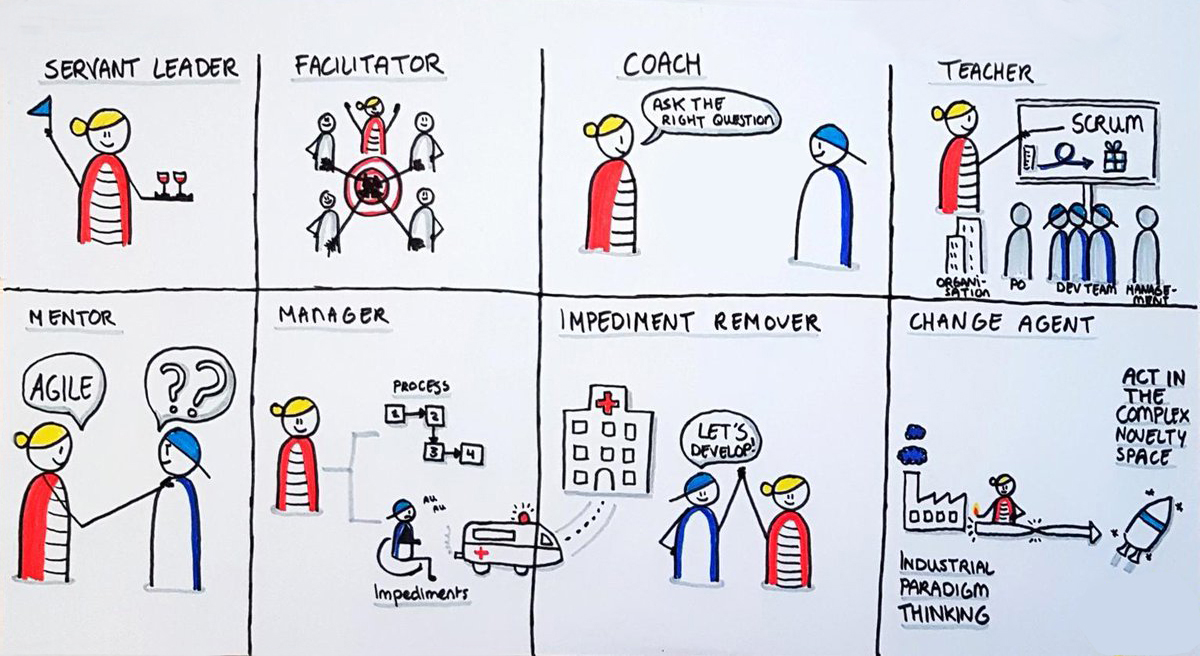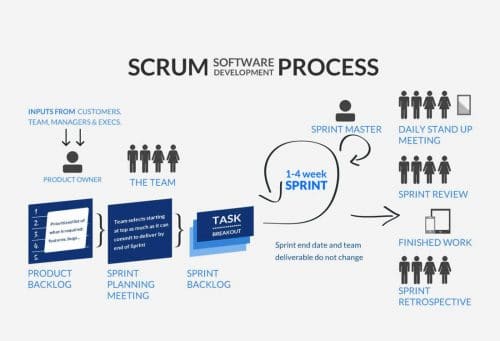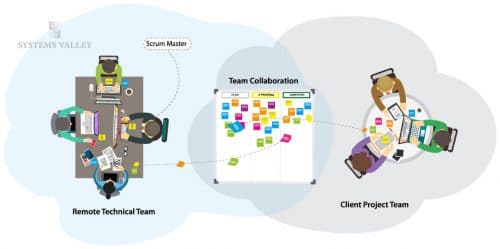It goes without saying that the scrum framework has become an essential part of projects encompassing agile methodology. With some teams adopting a pure scrum approach, while others using hybrid agile approaches (a combination of the scrum with Kanban), several companies and clients are reaping the benefits of scrum methodology.
The success of a scrum team largely depends on the ability and experience of a scrum master as he is responsible for the correct implementation of the scrum framework. By encouraging the team to follow the scrum values, principles and rules, a collaborative culture is maintained. Apart from ensuring the team understands the scrum framework, he uses the potential of scrum allowing the team to make changes and self-organize itself. Some of the important qualities and responsibilities of a scrum master are given below.
- Comprehensive understanding of the software delivery processes of the organization
- Ability to build and maintain good work relationships with team members and all stakeholders.
- Provide essential training and professional coaching required to build a strong agile team
- Ensure the involvement of team members with setting up processes and implementing the scrum values and rules.
- Encourage ownership and knowledge sharing
- Interpret agile concepts and methods to the team in effective ways.
- Proper communication of information across all channels.
- Creating transparency by providing information via, the product and sprint backlog, daily scrum, reviews, and a visible workspace etc.
- Hold meetings with product owners to ensure smooth development and deliveries; removal of all impediments to progress.

Based on the personal experience, Barry Overeem, a professional scrum trainer has documented 8 stances of a scrum master. (Read it here.https://www.scrum.org/resources/8-stances-scrum-master ) The scrum master wears many hats including servant leader, facilitator, coach, manager, mentor, teacher, impediment remover, and change agent. An excellent scrum master is able to switch between these roles fluidly, depending on the current situation and the needs of the people involved.
Scrum Master as a Servant leader: In the scrum world, a scrum master is commonly known as a servant leader. As a servant leader, he gives special attention to the needs of the team members and the clients and understands the will of the group. He bears in mind to achieve the set objectives/results in line with the company’s principles.
Scrum Master as a Facilitator: The scrum master serves as a facilitator for both the Product Owner and the Development Team. The meetings are designed and led effectively by a skilled facilitator. He provides clear boundaries in which the team can collaborate and provide opportunities for team to continuously improve.
Scrum Master as a Coach : Every scrum master should be a coach for the team and help the team to unleash their full potential. Scrum master not only coaches the team, but coaches the individual and the organization. As a coach, he coaches the individual with a focus on mindset and behavior, the team in continuous improvement and the organization in truly collaborating with the scrum teams.
Scrum Master as a Manager: Scrum Master is seen as a manager, albeit not in the traditional sense. Within the agile context scrum master is a manager, responsible for managing impediments, managing the process, managing the team, managing the boundaries of self-organization, and managing the culture.
Scrum Master as a Mentor : The scrum master mentors the team as to what scrum is and how to use it. As a good mentor, he transfers agile knowledge and experience to the team to illuminate their path of the journey.
Scrum Master as a Teacher: As a teacher, he ensures scrum is understood by everyone involved with the scrum team. The scrum master teaches the team about the core of scrum, best practices of scrum, and teaches the product owner about backlog management and the organization about scrum.
Scrum Master as an Impediment remover: Scrum master makes conscious decisions about removing impediments. He focuses on solving issues that prevent the team's progress by considering the self-organizing capabilities of the development team.
Scrum Master as a Change agent : He enables a culture in which scrum teams can flourish. By causing the right changes, the productivity of the scrum team is increased significantly.
These are the different roles of a scrum master. A great scrum master is aware of them and knows when and how to apply them.




